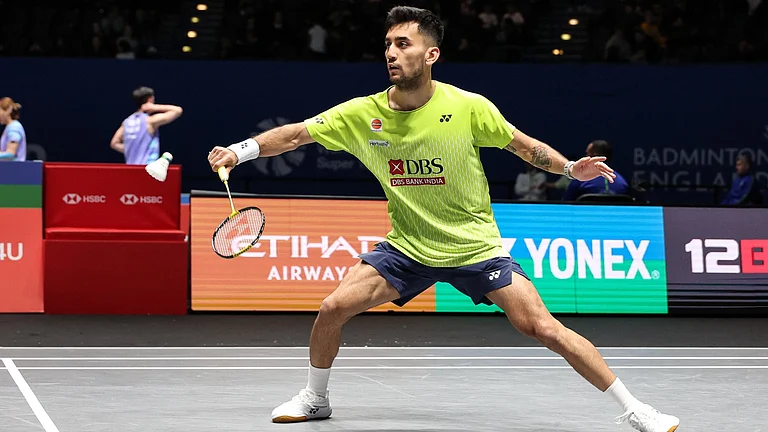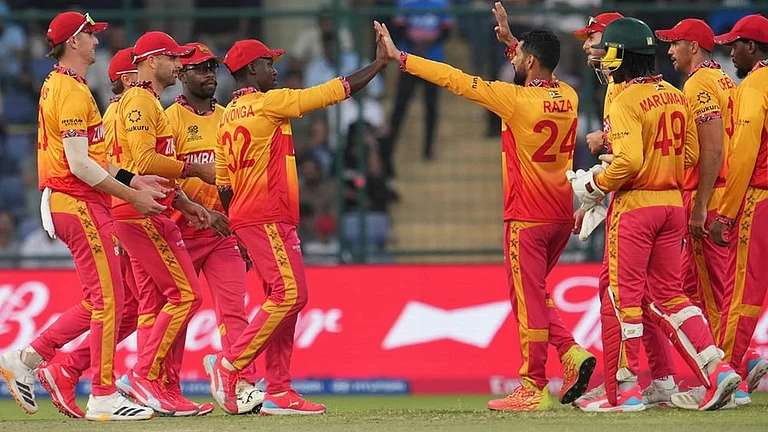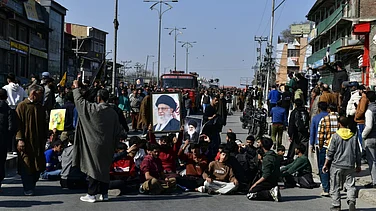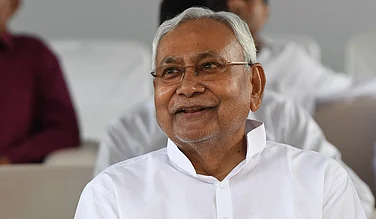The long-pending Women’s Reservation Bill, which was approved by the Union Cabinet on Monday evening on the day Parliament met for a special session, certainly paves the way for 'guaranteed' representation of women in Indian politics. The Bill envisages 33 per cent quota in Lok Sabha and state Legislative Assemblies, which has long been demanded by several political parties and leaders. In the present Lok Sabha, there are only 78 women members who account for less than 15 per cent of the total strength of 543. Besides, several states have less than 10 per cent of women representing the electorate in assemblies.
But what is interesting to look at is the timing of the Bill’s approval. The Bill, which has seen several lapses in Parliament time immemorial, due to several reasons, is likely to be passed a few months before the 2024 Lok Sabha elections. With political leaders of the ruling Bharatiya Janata Party (BJP) hailing PM Modi over ‘the moral courage to fulfil the demand for women's reservation’, the political undertone of the same draws precedence over the history of the Women's Reservation Bill.
However, the Centre’s move cannot be seen in isolation at a time when other states, which are headed for polls by the end of this year and before the General Election, have brought in schemes to make women empowerment one of the central points of politics. A look at a few recently launched schemes once again shows how women-oriented promises take centre stage ahead of the election but the question remains over their implementation.
Chhattisgarh
The Congress-ruled state that is slated to go to polls this December has seen the impact of a few women's welfare schemes on women’s mobility in the workforce, according to reports.
State Women Entrepreneurship Policy
According to information received from the Chhattisgarh Public Relations Department in April 2023, the state government implemented the 'State Women Entrepreneurship Policy 2023-28' to connect women with entrepreneurship. Under this scheme, financial and economic benefits will be provided to women from the state to set up their own industries and businesses. A provision has been made to give loans up to a maximum of Rs 50 lakh to women entrepreneurs of the state for manufacturing enterprise projects, a maximum of Rs 25 lakh for service enterprise projects and up to Rs 10 lakh for business enterprise projects.
Kaushalya Matritva Yojana
A day before International Women’s Day, last year, Chhattisgarh Chief Minister Bhupesh Baghel launched the ‘Kaushalya Matritva Yojana’ and gave away cheques of Rs 5,000 each to five women beneficiaries for safe motherhood, to encourage the upbringing of their second child. While announcing the scheme, Baghel said that women were lagging behind men in terms of economic participation, adding that his government had started initiatives like ‘Mahila Madai’ and had helped women prepare various items at Gauthans.
“Now the women of Chhattisgarh will also manufacture paint and produce electricity from cow dung. It will boost the income of women and create employment opportunities. Gauthans are being developed into rural industrial parks. On the occasion of ‘Teeja-Pora’, the state government has also waived loans of Rs 13 crore of Self-Help Groups and doubled their loan limit through Mahila Kosh,” he had said.
Madhya Pradesh
Mukhyamantri Ladli Behna Scheme
In June, early this year, the Madhya Pradesh government said that it had transferred Rs 1,000 each to the accounts of 1.25 crore women in the state as it rolled out the ‘Ladli Behna Yojana’, a scheme billed as a ‘game-changer’ by the BJP in the poll-bound state. Later in the month, the Chief Minister said that the Rs 1,000 per month that is being given to women beneficiaries as part of the scheme will be hiked three times in a phased manner. Under this scheme, women will be given assistance per month with certain riders, including that they are not Income Tax payees and their families' annual income was below ₹2.50 lakh annually.
Laadli Laxmi scheme
In 2007, after becoming the chief minister for the first time in 2005, Shivraj Singh Chouhan launched the 'Ladli Laxmi' scheme which was supposed to provide monetary benefits to eligible girl children to ensure they get a good education. In November 2022, Chouhan launched the 'Ladli Laxmi 2.0' financial assistance scheme to encourage girls to pursue higher education. Under this scheme, financial assistance of Rs 25,000 would be given to the daughter after she starts her education at the college level.
Rajasthan
Free smartphone scheme
A few months ahead of the polls, Rajasthan Chief Minister Ashok Gehlot in August launched the free smartphone scheme for women in the state. The government, under the Indira Gandhi smartphone scheme, said it would transfer Rs 6,800 to the e-wallet of beneficiary women after the completion of their KYC process in special camps. The beneficiary can then purchase a mobile phone of their choice in the camps set up by the government. In the first phase of the scheme, around 40 lakh women and girl students will get smartphones with three years of free internet connectivity.
Telangana
KCR Nutrition Kits
In one of the recent announcements of welfare schemes ahead of the state polls, the KCR government in Telangana said that as part of the nutrition kit scheme, 6.84 lakh pregnant women will benefit from the distribution of 13.08 lakh kits across the state, with each kit costing Rs 2,000. The special nutritional kit is said to come loaded with supplements consisting of proteins, minerals, vitamins carbohydrates and other micro-nutrients. The scheme was originally launched on June 2, 2017.
Outside the poll season, several other welfare schemes for women, over the years, have been announced by different governments. For instance, the Delhi government launched free bus rides for women in the national capital in order to fulfil one of its promises. As per the scheme, conductors distribute pink tickets having a face value of Rs 10 each to women passengers for free travel on DTC buses. The government then reimburses the transporters based on the number of such tickets issued. However, over the years, several reports and investigations into the scheme have revealed why the scheme does not help. Women have alleged that buses don’t stop for them and concerns of safety are a distant dream for women in Delhi.
Under a similar scheme in Karnataka, 'Shakti', women have the provision of travelling free in non-premium buses of the state-run road transport corporations.
In Bengal, the Kanyashree programme by CM Mamata Banerjee has attracted a lot of eyeballs. The scheme, which provides scholarships to female students, also bagged the UN award in 2018. However, despite the much-celebrated scheme, a recent survey by the Union government revealed that Bengal has the highest dropout of girl children than any other state. The Ministry of Statistics and Programme Implementation decided to conduct a National Sample Survey from January to December 2020 but the deadline was extended to December 2021 because of the Covid-19 pandemic. The number of girls sitting at home is much higher in rural areas than in urban pockets, the report found.
After coming to power in the recent Karnataka Assembly elections, the Congress government launched the 'Gruha Lakshmi' scheme, offering a monthly assistance of Rs 2,000 to about 1.1 crore women who are heads of their households. 'Gruha Lakshmi' scheme, rolled out amid fanfare, is one of the five pre-poll 'guarantees' of the Congress, which ousted the BJP from power in the May Assembly elections. Earlier, the CM had said that his government has already implemented three of the five 'guarantees' (pre-poll promises) -- 'Shakti', 'Gruha Jyothi' and 'Annabhagya' -- and noted that 'Gruha Lakshmi' is the fourth one. However, recently the government has paused taking registration to avoid confusion during the process of the first instalment of ₹2000 to beneficiaries.






















